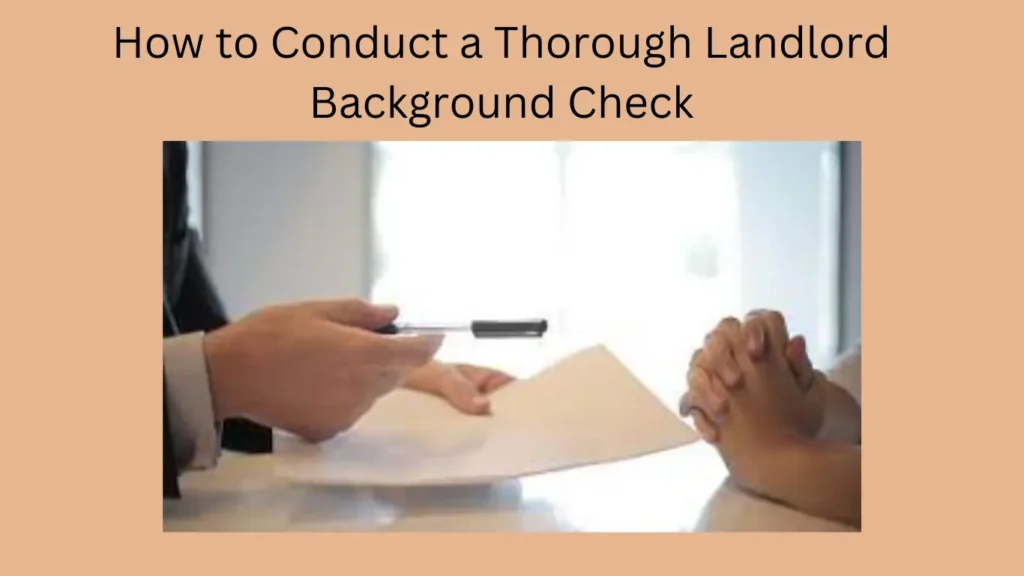Renting a property is a significant decision, and conducting a thorough background check on your prospective landlord is essential to ensure a positive rental experience. This guide will walk you through the steps of conducting a comprehensive landlord background check, focusing on creating helpful, reliable, people-first content.
1. Research the Landlord’s Reputation
- Online Reviews: Check platforms like Google Reviews, Yelp, and social media for feedback from current and former tenants.
- Ask Around: Talk to neighbors or other tenants in the building to get a sense of the landlord’s reputation.
2. Check for Legal Compliance
- Fair Housing Laws: Ensure the landlord complies with fair housing laws and does not discriminate against tenants based on race, religion, or other protected characteristics.
- Lease Agreements: Review sample lease agreements or ask for a copy to understand the terms and conditions you’ll be agreeing to.
3. Verify Financial Stability
- Property Ownership: Check public records to verify that the landlord owns the property and is authorized to rent it out.
- Property Maintenance: Look for signs of well-maintained properties, which may indicate a financially stable landlord.
4. Evaluate Property Management Skills
- Maintenance Responsiveness: Inquire about the landlord’s response time to maintenance requests and how they handle repairs.
- Property Conditions: Visit the property to assess its condition and how well it is maintained.
5. Conduct a Criminal Background Check
- Public Records: Search for any criminal history or legal issues involving the landlord, which may raise red flags.
- Safety Record: Look for any past incidents or complaints related to tenant safety.
6. Request References
- Previous Tenants: Ask the landlord for references from previous tenants to get an idea of what it’s like to rent from them.
- Professional References: Request references from other professionals who have worked with the landlord, such as property managers or contractors.
7. Seek Legal Advice if Needed
- Consult a Lawyer: If you have any doubts or concerns about the landlord or the rental agreement, seek legal advice to ensure your rights are protected.
Conclusion
Conducting a thorough landlord background check is crucial for tenants to ensure they are renting from a reliable and trustworthy landlord. By following these steps and conducting due diligence, you can make an informed decision and have a positive rental experience.
For further Inquires Contact Us
FAQs
What is a landlord background check, and why is it important?
Answer: A landlord background check involves researching a landlord’s reputation, financial stability, property management skills, legal compliance, and safety record to ensure a positive rental experience and protect tenant rights.
How can I research a landlord’s reputation?
Answer: Research a landlord’s reputation by checking online reviews, asking for references from previous tenants, and talking to neighbors or other tenants in the building.
What should I look for in a landlord’s lease agreement?
Answer: Review a landlord’s lease agreement for fair and clear terms, compliance with rent laws, and provisions for maintenance and repairs.
How can I verify a landlord’s financial stability?
Answer: Verify a landlord’s financial stability by checking public records for property ownership and maintenance history, and assessing the condition of their properties.
Are there legal considerations when conducting a landlord background check?
Answer: Yes, ensure compliance with fair housing laws, obtain the landlord’s consent for background checks, and seek legal advice if needed to protect your rights as a tenant.
